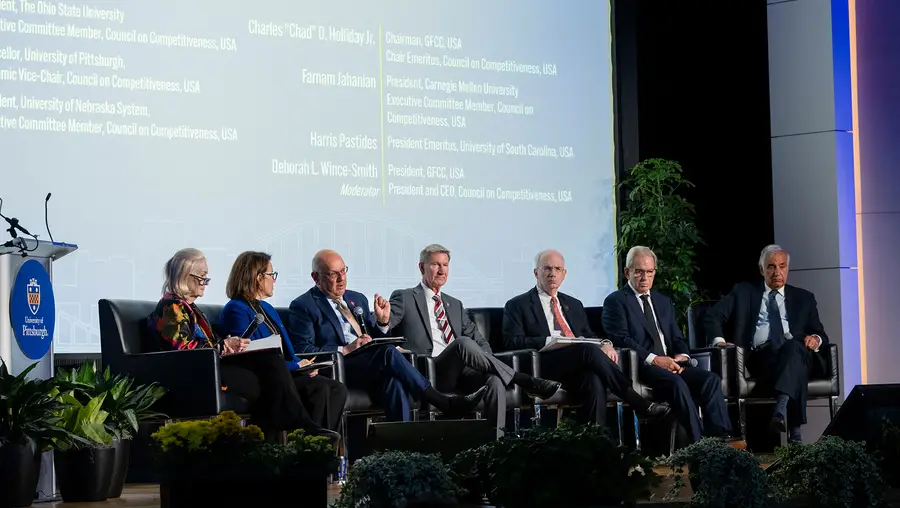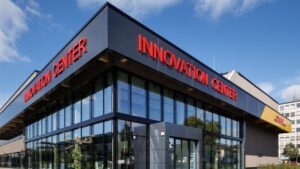
UPDATE: A major global innovation summit kicked off this week at the University of Pittsburgh, spotlighting the intersection of health care, artificial intelligence, and technology. The event, titled Forging the Future, is co-hosted by Carnegie Mellon University (CMU) and the Council on Competitiveness, in collaboration with the Global Federation of Competitiveness Councils (GFCC).
The summit aims to unite thought leaders from academia, industry, and government to explore how AI is revolutionizing health care. The urgency of this conversation comes as cities like Pittsburgh position themselves as global hubs of innovation, heavily driven by their renowned research institutions.
On the first day, CMU President Farnam Jahanian and Pitt Chancellor Joan Gabel opened the forum with a joint welcome. Jahanian emphasized Pittsburgh’s transformation over the past two decades, fueled by a unique collaboration between public and private sectors. “Today, we are a city of eds, meds and emerging tech,” he stated, highlighting the city’s role in economic development through innovation.
The summit featured a panel titled “The Health, AI and Productivity Imperative: From University Research to Community Impact,” where Jahanian discussed how university-led research enhances productivity and health outcomes. He pointed out that CMU introduced the first undergraduate degree in AI in 2018 and is actively integrating AI across its curriculum. “We are on the verge of a fundamental shift in education, aiming to improve learning outcomes for students at all levels,” he noted.
Later, CMU’s Vice President for Research Theresa Mayer joined international leaders to discuss how Pittsburgh is shaping a sustainable future through tech collaboration. “Pittsburgh has a deep tradition in manufacturing, bolstered by our region’s incredible natural resources,” she declared. Mayer also referenced a significant energy and AI summit hosted by Senator Dave McCormick at CMU in July 2023, which attracted over 40 CEOs and several cabinet secretaries, signaling the importance of Pennsylvania in the national landscape of AI and energy.
The lunch panel featured Marsha Lovett, CMU’s vice provost for teaching and learning innovation, who stressed the need for educational systems to integrate AI effectively. “Education must be nimble and data-informed to adapt to changing needs,” she emphasized, advocating for lifelong learning infrastructure to support ongoing education.
As the summit continues, attendees are closely monitoring the discussions that could reshape the future of health care and technology. The dialogue on AI, health, and productivity is not just theoretical; it carries immediate implications for how cities like Pittsburgh can lead in innovation and improve community health outcomes.
Stay tuned for more updates from this critical summit as leaders discuss the future of technology in health care and how these innovations are expected to impact lives globally.






